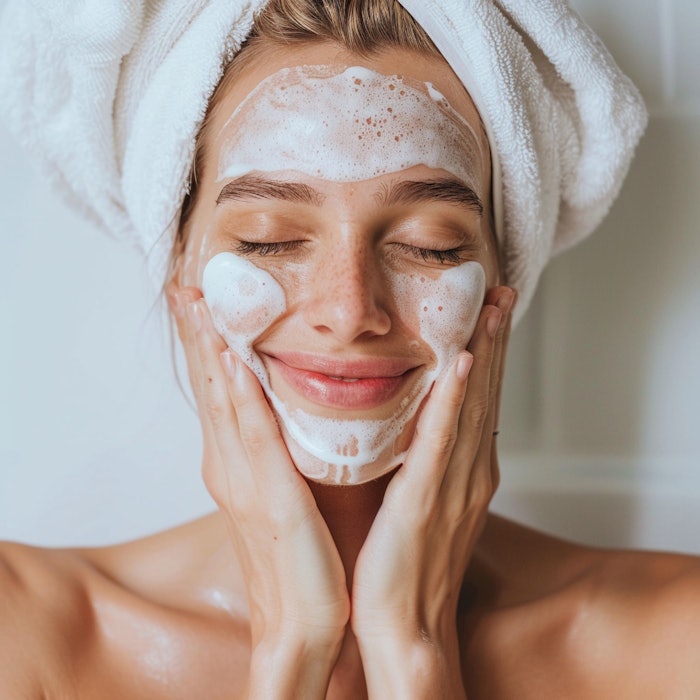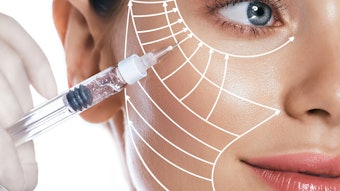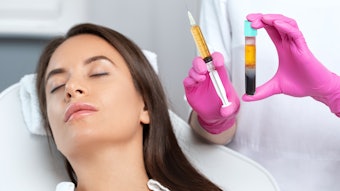
Ensuring patients are supporting their in-office treatments with adequate at-home skin care regimens is an important part of optimizing and maintaining results in between visits. This is even more important when it comes to patients suffering from chronic skin conditions, such as rosacea. You may have seen our previous coverage about Rosacea Awareness Month in April, which emphasizes the significance of educating patients and recommending the proper at-home care regimen as part of their rosacea therapy.
Per our previous article, During Rosacea Awareness Month, AARS continues to educate its members and their patients about the signs and symptoms of this common inflammatory skin disease that most often affects the face. AARS members are sharing #RosaceaFacts and highlighting the availability of effective treatments for the condition. As part of its efforts, AARS has published a social media toolkit for use by its professional members. The kit includes social posts, cards and banners for use on various social media platforms and inspiration for informative social posts.
“The general consensus among dermatologists today is that, in addition to medical care, effective skin care recommendations are a crucial part of successful rosacea therapy,” said Hilary Baldwin, M.D., associate professor of dermatology at Rutgers Robert Wood Johnson Medical School and a member of the NRS medical advisory board. “The use of quality OTC products can not only help improve the signs and symptoms in and of themselves but are often used as adjuncts before and during prescription therapy and as part of long-term care.”
In NRS surveys, 92% of rosacea patients reported burning, stinging and itching, 82% reported that certain skin care products and cosmetics aggravated their condition, 70% said there were specific ingredients that irritated their skin and 84% were interested in more guidance on skin care. The most common irritants were astringent alcohol (63%), perfumes or fragrances (57%), witch hazel (31%) and menthol (30%). Around a quarter of respondents were affected by peppermint or eucalyptus oil, dyes and pigments, sulfates, and parabens or other preservatives.
“While the use of skin care and cosmetic products can help minimize the appearance and effects of rosacea, poorly selected products may make it worse.” Dr. Baldwin said. “Fortunately, there are now many products that are formulated to be suitable for sensitive, rosacea-prone skin, without ingredients that may cause flare-ups. The primary challenge today is when rosacea sufferers face the bewildering array of options in the pharmacy skin care aisle.”
In our recent survey which asked, Do you educate/recommend patients at-home care/post-care regimens as part of their treatment plans? 96% of readers said yes and 4% said no.
With patient education and recommending the right at-home skin care regimen for your patients based on their individual needs being necessary to ensure treatment success and skin health, knowing what, how and why certain at-home skin care regimens are important for optimal patient care is essential. Here are seven informative MedEsthetics articles to help you do just that.
- Dermatologists Have Strongest Influence on Consumer Skin Care Decisions, Dermatologists Have the Most Influence on Patient's Decisions for Cosmetic Procedures: ASDS Survey
- AAD Releases Updated Guidelines for Management of Acne Vulgaris
- Sun Protection Savoir Faire
- 5 Notable Developments in Derm-Recommended OTC Skin Care [Survey Results]
- Lift & Tuck: Consumer Attitudes Toward Aesthetic Procedures
- Valisure Files Citizen Petition for Market Withdrawl of Benzoyl Peroxide Products
- Multi-site Destinations & Combinable Services Drive the US Skin Care Market
Check back every Tuesday for a new one-click survey.
We'll reveal the answers in next week's MedEsthetics newsletter.











